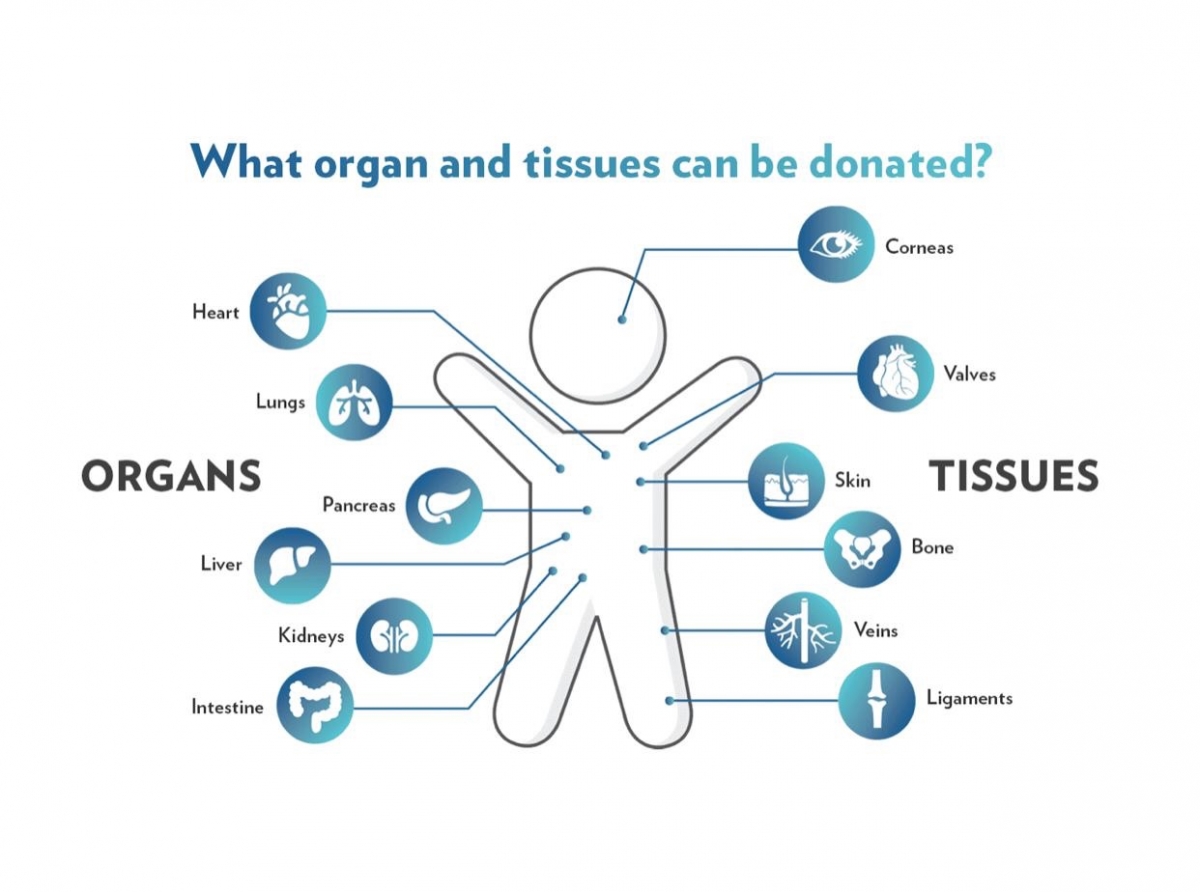The SARS CoV-2 pandemic has not diminished the will and solidarity of Jalisco citizens to donate organs and tissues.
In the first seven months of 2021, Jalisco exceeded donations and transplants from the entire previous year. In 2020, 278 transplant procedures were performed, as of July this year 388 were counted.
This was highlighted by the technical secretary of the head of the State Council for Organ and Tissue Transplantation (CETOT,) Francisco Monteón Ramos, after noting that despite the health crisis due to COVID-19, Jalisco continues to contribute donations to the National Transplant Program, thanks to the design of the health strategy implemented by CETOT in 2020. He added that due to the good medical infrastructure of the state, this has made it possible to supersede pre-pandemic figures in only the second quarter of 2021.
During the tribute and virtual recognition to donor families, held yesterday marking the State Day for the Donation of Organs and Tissues, the Secretary of Health of Jalisco, Fernando Petersen Aranguren, elaborated in this regard that the entity remains among those that have achieved the most transplants despite the pandemic, also due to the generosity of those who agree to donate.
The head of the Jalisco Health Secretariat (SSJ) explained that the infection by the new coronavirus affected thousands of patients throughout the country who were in the process of transplantation, so CETOT worked to resolve and reactivate the programs as soon as possible, which had been halted to comply with federal and World Health Organization safety guidelines.
“Today Jalisco is one of the states with the most progress in this reactivation. Even so, the challenge is enormous, until the first semester of this year there were 5,518 patients on the waiting list for an organ, of which 4,572 correspond to the kidney, 896 to the cornea, 47 liver and three others,” pointed out Petersen Aranguren.
When taking the floor, Laura Lambarren Verdín, mother of a young donor, highlighted that donating her daughter's organs and tissues allowed her to “embrace joy and pain, because they are not antonyms. The joy of sharing 27 years and three days with a beautiful girl, and the pain of saying goodbye.” She stressed that the act of donating is about giving life through a kidney or a liver.
On her side, Priscila Macías Amezcua, 33 years old and twelve years since having a transplant, thanked the families of the donors for the decision to give life through their deceased relative. "Receiving an organ is not a celebration, it is honoring the lives of the people who have donated."
On August 4 of each year, Jalisco celebrates the State Day of Organ and Tissue Donation, commemorating the first transplant performed in the state. This 2020, under the slogan "Gratitude Above All, in the Context of the Pandemic," a tribute was held, delivering nine recognitions to families of deceased people, benefactors who donated organs and tissues of their loved ones during 2020.
In 2020 a total of 24 families decided to donate organs and tissues of a deceased relative, as of June of this year 22 families have given the opportunity of life through the donation of an organ or tissue.
However the miracle of a transplant is not a complete solution, as these patients will require further treatment and medication.
The Government of Jalisco is sensitive to the demand of transplanted patients as well as chronic kidney patients and their families, for which it will join in requesting the Federal Government to resolve in a timely manner the supply of the medications required for their complete treatment.

The Director General of Strategic Development of the Jalisco Health Secretariat, Arturo Muzquiz Peña, yesterday afternoon received the request form from the patients and relatives who expressed their disagreement with the Federation and went to Casa Jalisco for deliberation. Next week there will be another meeting to finalize agreements that will be presented to the Federation.
"We have a route for the Federal government, both INSABI, the IMSS and the ISSSTE, to strengthen their capacities to attend to kidney patients here in Jalisco in their different clinics and hospitals," said the official.
"We are presenting a draft proposal to direct it to Jorge Alcocer Varela, who is the Federal Secretary of Health, so that we can express his concerns and our proposed solutions."
Múzquiz Peña added that Jalisco has its own work route in the prevention of kidney disease. "In the last three years, several studies have been carried out to follow up and monitor the extent of kidney disease and failure in Jalisco," he explained.
He added that he intends to work together with civil associations to prevent and address the problem of those who are already sick right now, who state that part of the problem with federal institutions is the quality of the drugs that, in his opinion, "puts this great problem at risk, the effort that has been made in Jalisco for the transplanted.”
Muzquiz Peña commented that the Government of Jalisco has already established a dialogue with representatives of different organizations that work with kidney patients to define the proposal for the Federal government to attend to the requests.
He added that to the extent that COVID-19 cases allow, they will be working on the total reactivation of transplant programs to "shorten the list of Jalisco people who are on the waiting list."

